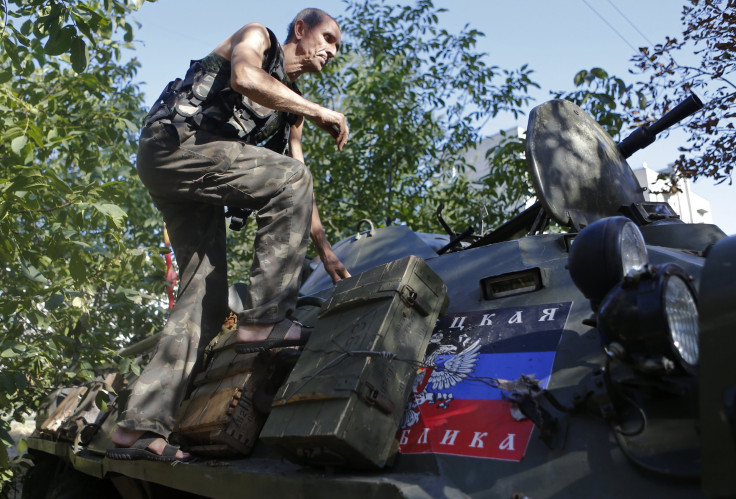Australia To Ramp Up Sanctions Against Russia; Lavrov Says No Intention To Invade Ukraine

Australian Prime Minister Tony Abbott said Monday that the country will increase sanctions against Russia amid escalating tension in eastern Ukraine. Australia's decision comes despite Russia's foreign minister asserting that his country will not conduct a military intervention in Ukraine.
According to the terms of the sanctions, Australia will stop exporting arms to Moscow and deny Russian state-owned banks fresh access to the Australian financial market. Australia will also not make any new investments in Crimea, which Russia annexed in March, and will place targeted travel bans and financial sanctions against specific Russian and Ukrainian nationals. On Sunday, Russian President Vladimir Putin reportedly pushed for talks between Ukraine and pro-Moscow rebels to grant a form of "statehood" to eastern Ukraine.
“Russia quite brazenly is trying to break the eastern Ukraine away from Ukraine itself into a separate country. If Russia persists in its attempt to break up a neighbouring country that has done it no harm, it risks becoming an international pariah,” Abbott said Monday, according to The Guardian, adding: “The bullying of small nations by big ones and assertions that might is right should have no place in our world.”
The fresh set of bans from Australia will affect 63 Russian and Ukrainian individuals, along with 21 corporations, according to The Guardian. So far, the Australian government has targeted 113 individuals and 32 entities in total.
Meanwhile, authorities in Kiev said Monday, according to Agence France-Presse, that Ukrainian troops are fighting a Russian tank division in the city of Luhansk. Last week, Kiev had also claimed that Russia had moved its troops and tanks into the eastern Ukrainian city of Donetsk.
Russia has previously denied wanting to invade Ukraine while Sergei Lavrov, Russia’s Minister of Foreign Affairs, on Monday asked Kiev to order its forces to stop using heavy weaponry against civilians and rebels. He also called on Ukraine's government to arrange a cease-fire with the pro-Moscow rebels.
“There will be no military interference. We are committed exclusively to the peaceful settlement of this deep crisis, this tragedy,” Lavrov said, according to Itar-Tass, adding: “The most important is that Washington and Brussels demand from Kiev the same that they demand in all other conflicts: to stop using heavy weaponry and aviation against civil facilities and civilians.”
"I expect that the talks started earlier in the day will be dedicated to a task of fixing, immediately and without preconditions, terms for a ceasefire," Lavrov added, according to Itar-Tass.
© Copyright IBTimes 2025. All rights reserved.






















